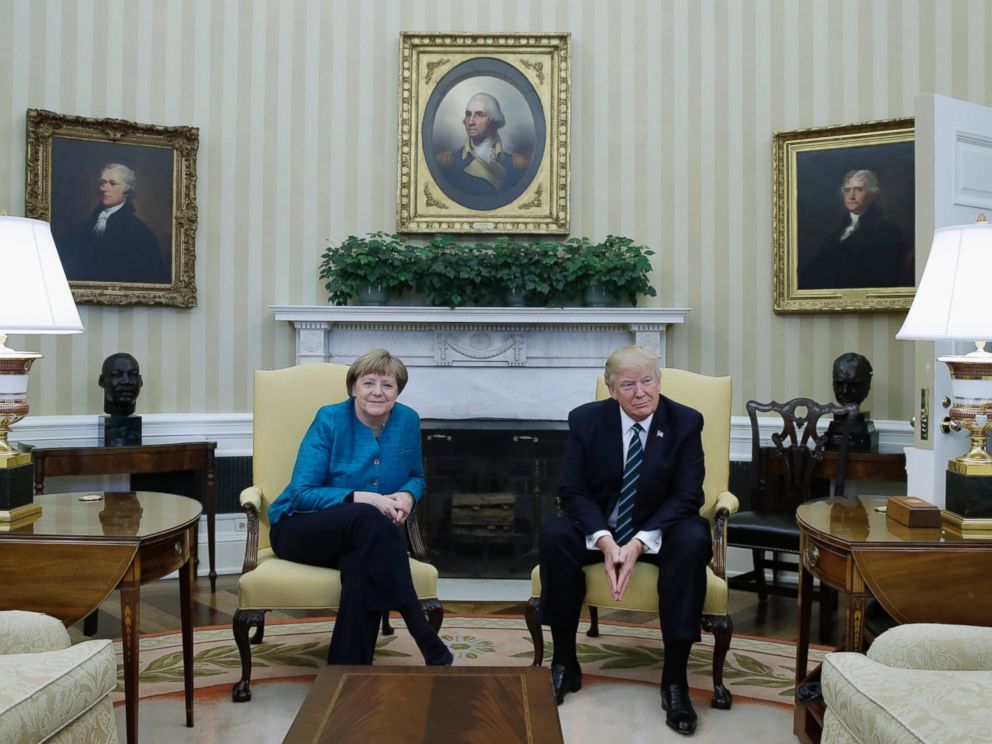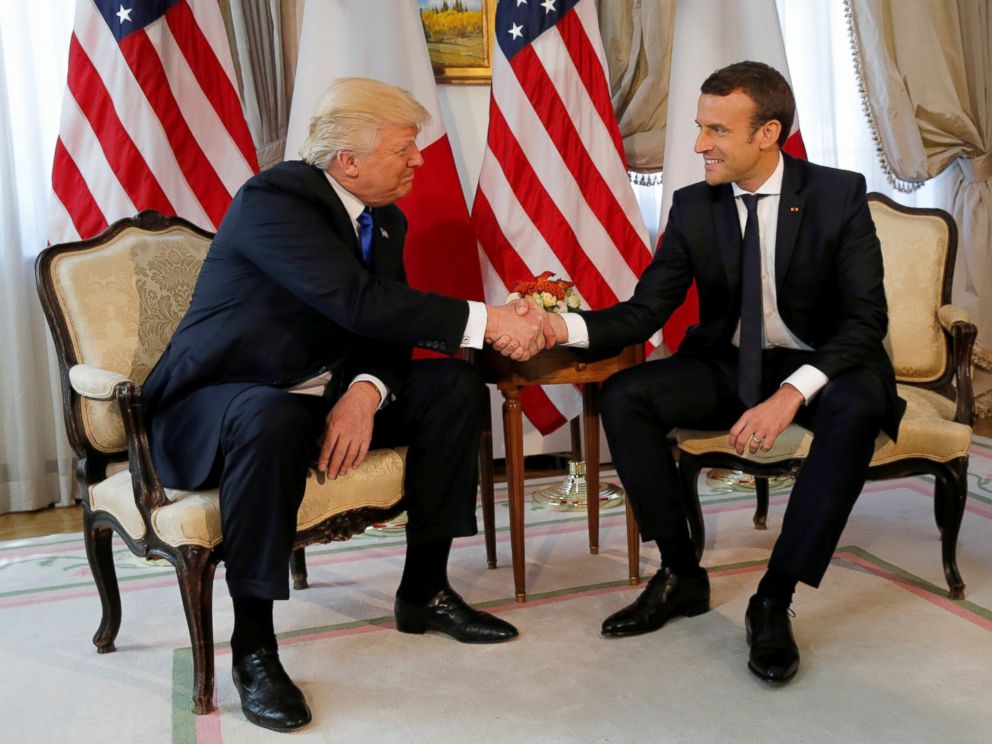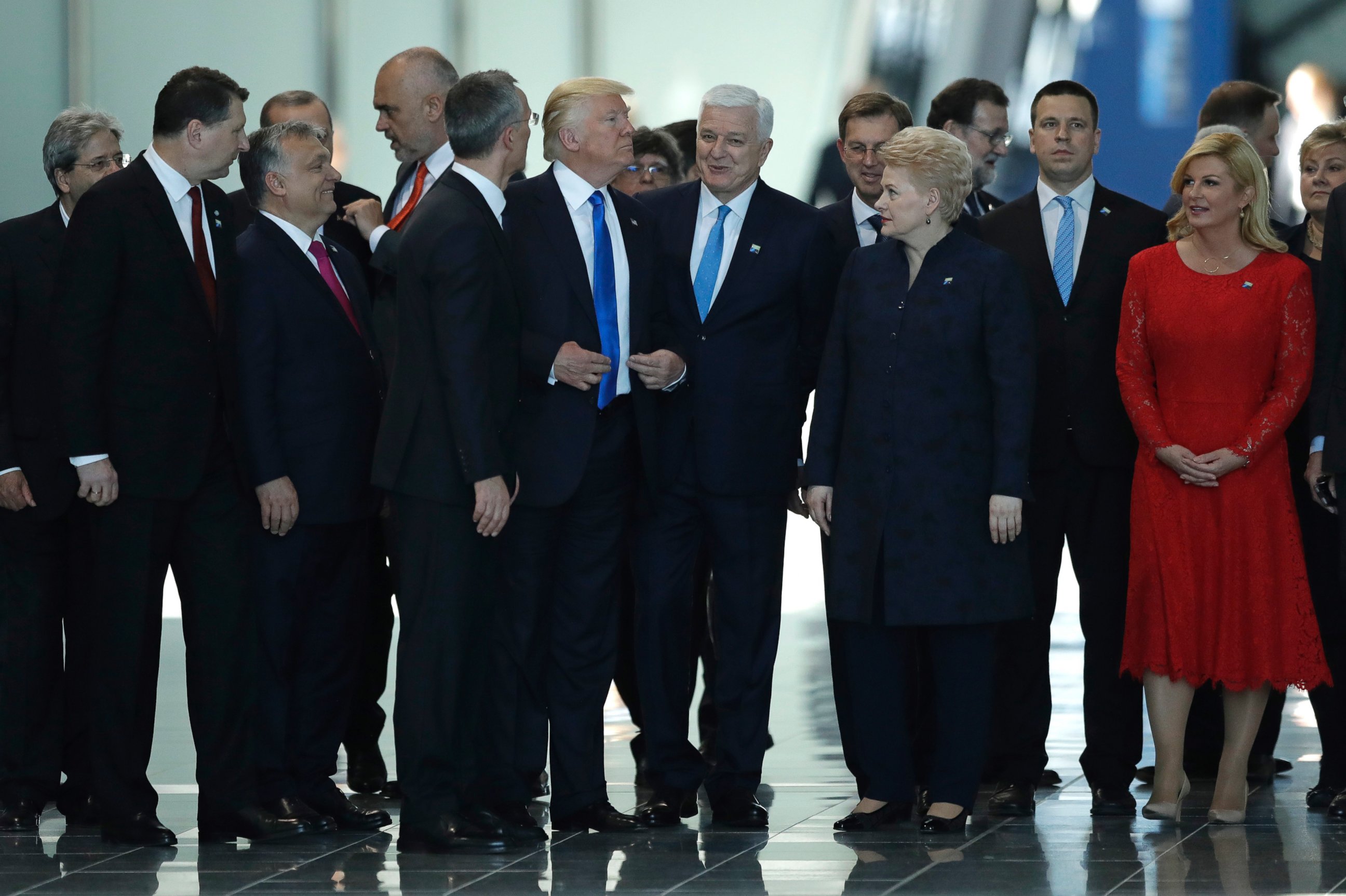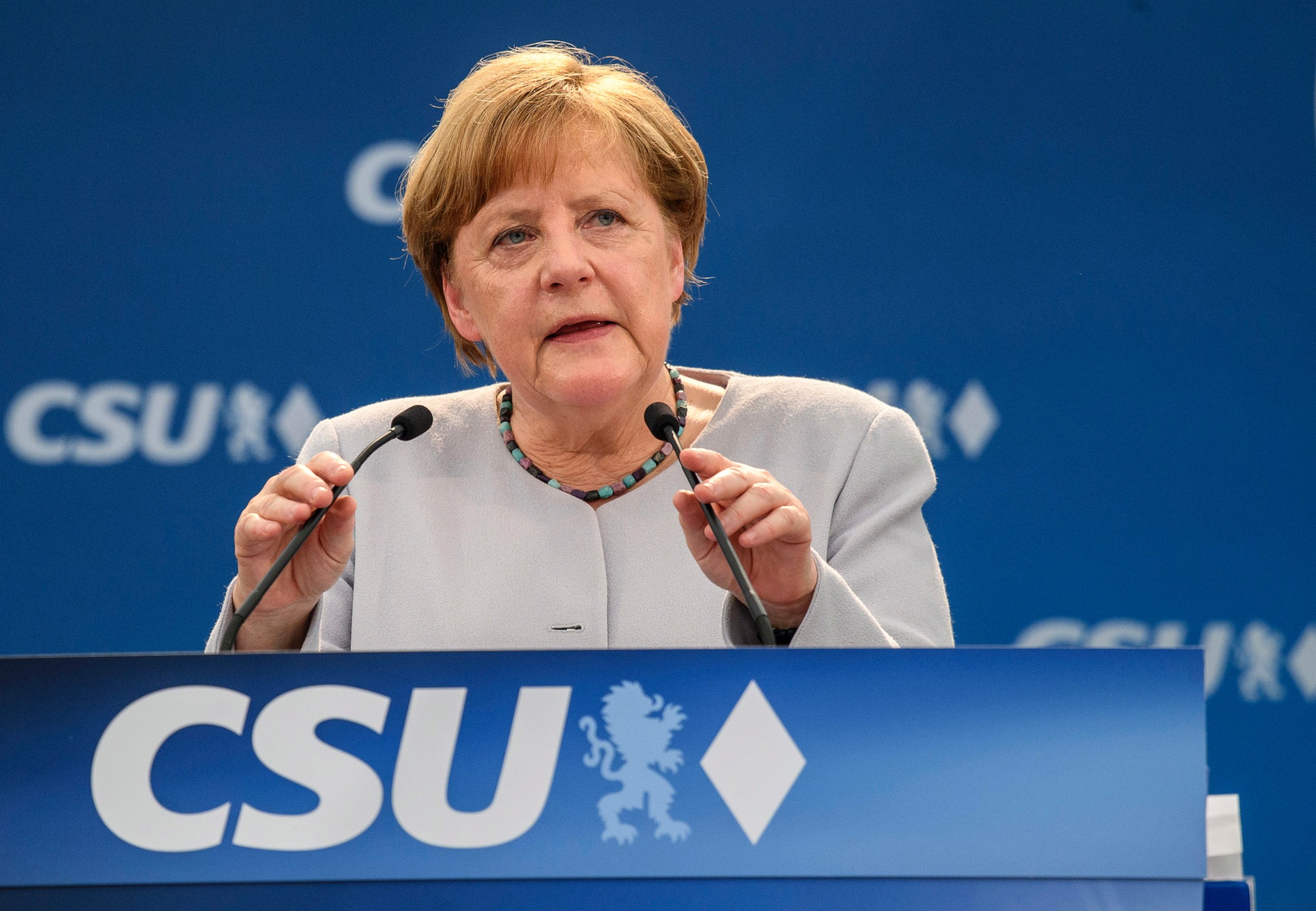Key US-Europe relations called into question after Trump trip
President Trump and the leaders of France and Germany sent mixed signals.
— -- President Donald Trump's eight-day, five-country tour of the Middle East and Europe last week allowed him the opportunity to meet with a number of the world's preeminent leaders. As has been his approach throughout his short political career, the president seized upon the occasion to pressure partners on his America-first designs, ruffling the feathers of some major allies.
Newly elected French President Emmanuel Macron and German Chancellor Angela Merkel -- who was a close collaborator with Trump's predecessor Barack Obama -- are two of those allies on whom Trump's visit seems to have left an impression. Each has spoken in the aftermath about their meetings with the president and the directions their countries may take should diplomatic relationships change.
White House press secretary Sean Spicer took a different tack at Tuesday's press briefing, portraying the bond between Trump, Merkel and Europe as a whole as a strong one.
"I think the relationship that the president has had with Merkel he would describe as fairly unbelievable. They get along very well. He has a lot of respect for her," said Spicer. "They continue to grow the bond that they had during their talks at the G7. And he views, not just Germany, but the rest of Europe, as an important American ally."
With the path forward in question, here's a look at some of the encounters that have defined Trump's relationship with Germany and France so far in his presidency:
March 18: Trump and Merkel meet at the White House

The president's first meeting with the German chancellor came during Merkel's March visit to Washington, D.C. The pair previously exchanged public comments about one another's policies, with Trump saying Merkel was ruining Germany and comparing her to his presidential campaign rival Hillary Clinton, and Merkel issuing critiques of Trump's travel ban executive order through her spokesperson.
The White House encounter was marred by a pair of awkward moments between the two, beginning with an Oval Office photo opportunity in which they did not engage in a customary handshake before the gathered press.
"Do you want to have a handshake?" asked Merkel as Trump sat stoically. Spicer later told German magazine Der Spiegel that Trump did not hear the question.
Later, during a joint press conference, Trump attempted to make light of his claim that President Barack Obama ordered a wiretap of Trump Tower by joking that it was something he and Merkel had in common -- referring to a report that the previous administration listened to Merkel's telephone calls.
May 25: Trump and Macron's intense handshake

Prior to Trump's trip to Europe, he had met with all of the G7 leaders except for Macron, who only took his oath of office two weeks earlier.
When they finally greeted each other for the first time, the men vigorously shook hands for over five seconds in a moment taken by observers to be symbolic of a potential power struggle. Macron later disclosed that the intensity of the ritual was no accident.
"My handshake with him, it wasn't innocent," Macron told French newspaper Le Journal du Dimanche. "One must show that you won't make small concessions, even symbolic ones."
May 25: Trump targets NATO members' defense spending
On Thursday, Trump also had the opportunity to address NATO, a body he has continuously decried over the majority of its members' failure to contribute the designated 2 percent of gross domestic product on defense spending.
"NATO members must finally contribute their fair share and meet their financial obligations," said Trump. "But 23 of the 28 member nations are still not paying what they should be paying and what they are supposed to be paying for their defense.
"This is not fair to the people and taxpayers of the United States and many of these nations owe massive amounts of money from past years, and not paying in those past years," he added.
Trump went on to express his belief that the alliance would strengthen with the additional money collected from those countries which designate less than two percent to defense. He also seemed to equate the issue of individual nations' defense spending to NATO funding as a whole as he brought up the new building from which he delivered his speech.
"And I never asked once what the new NATO headquarters cost," said Trump. "I refuse to do that."
May 25: Trump talks German trade
Behind closed doors Thursday, Trump targeted Germany and the U.S.'s trade deficit with the country, according to Der Spiegel. The president is said to have called Germany "very bad" while meeting with European leaders, faulting their actions on trade deals.
"The Germans are bad, very bad," said Trump, according to the magazine, and then he later threatened to "stop" the "millions of cars they sell in the U.S."

Trump's chief economic adviser Gary Cohn partially confirmed the report later when he clarified that the president wasn't referring to the German people, but rather solely its trade deals.
"He said they're very bad on trade but he doesn't have a problem with Germany," Cohn told the traveling press pool. "He said his dad is from Germany. He said, 'I don't have a problem Germany, I have a problem with German trade.'"
The president continued his grumbles over the deficit Tuesday morning as he tweeted that he would change the balance of trade with the ally.
"We have a MASSIVE trade deficit with Germany, plus they pay FAR LESS than they should on NATO & military. Very bad for U.S. This will change," wrote Trump.
May 28: Merkel prepares Germany to go it alone

Merkel departed the NATO meetings and G7 summit in Sicily with a changing outlook, returning to Germany, where she gave a speech Sunday that indicated the country shouldn't be reliant on its North American partner.
"The times in which we could completely depend on others are on the way out," said Merkel at a speech in Munich. "I've experienced that in the last few days."
Referring to the direction of new leadership in the U.S. and Great Britain, Merkel told her countrymen "we have to fight for our own destiny" and that "Europeans truly have to take our fate into our own hands."
A spokesperson for Merkel maintained Monday that the connection between Germany and the U.S. is "a strong pillar of our foreign and security policy" and that "Germany will continue working to strengthen these relations," but also that "it's right to name differences honestly" given the importance of the alliance.
The Associated Press contributed to this report.



